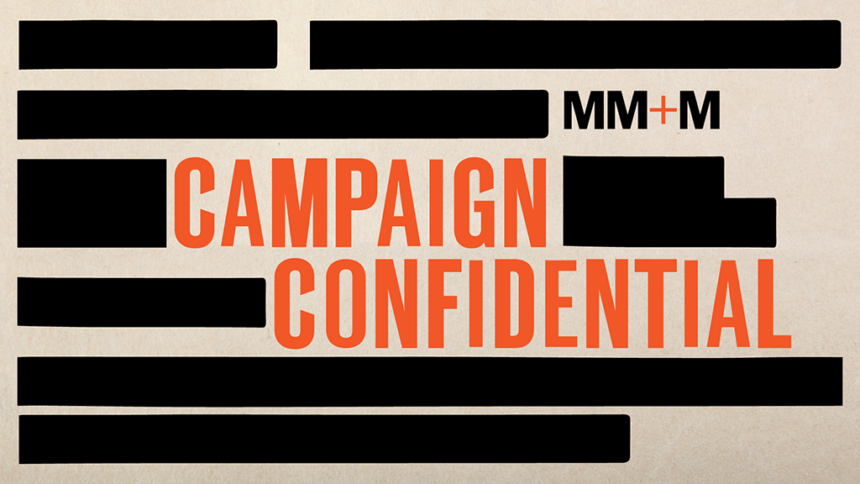Born in the 1940s, Smokey Bear was an influencer avant la lettre, (“before the letter”), as the phrase goes.
The long-standing symbol of the Forest Service and his familiar slogan, “Remember—only you can prevent forest fires,” were the work of the Ad Council (at that time, it was still called the Wartime Advertising Council).
The Ad Council also collaborated with Elvis Presley to encourage people to get vaccinated against polio in the 1950s.
Additionally, its anti-pollution spot that concludes with a tear rolling down the cheek of actor Iron Eyes Cody remains immediately familiar to most Americans of a certain age.
Simply put, the Ad Council knows something about public figures and leveraging their influence to shape opinion and drive behavioral change.
When the organization launched Creators for Good in 2015, it did so to tap into the power of the next generation of influencers. Now, the Ad Council is building on that program with a newly launched Creators for Good Ambassador program. That title is being bestowed on an original group of 10 creators, including comedian Jonny Morales, drag performer Kahmora Hall and psychiatrist Sasha Hamdani, MD.

Hamdani says the Creators for Good Ambassador program offers a way to carry important messages on mental health to broader audiences.
“We can foster empathy, reduce stigma and promote a culture of compassion,” she says. “By raising awareness about the prevalence and diversity of mental health conditions, we empower individuals to seek help without shame or fear.”
The program will focus on other areas of importance like gun violence prevention, substance use disorders and racial justice.
Ellyn Fisher, SVP of marketing and communications at the Ad Council, describes the lengthy history of the organization’s work with influencers.
“Our CEO Lisa Sherman joined the Ad Council [in 2014] and had done some work back with YouTubers and influencers during her days at Logo Network,” Fisher says. “She asked, ‘What if we did that for social causes?’”
The Ad Council took that directive and started collaborating with YouTubers before expanding to encompass all kinds of trusted messengers. Fisher says there was an understanding that for every audience, especially during the COVID-19 pandemic, there are a variety of messengers who will motivate people to learn more and change their attitudes and behaviors.
Fisher explains that part of what distinguishes the Creators for Good Ambassador program from the Ad Council’s earlier collaborations with creators is the involvement of the ambassador in every stage of a campaign — strategy, messaging and execution.
“What’s amazing and kind of groundbreaking about this ambassador program is that they’re coming in earlier in the process and we are tapping into creators for who they are,” Fisher says. “They are insightful, creative, strategic and we’re bringing all those talents to the table much earlier in the development process. They are helping to guide what we’re doing on these digital social channels and how we’re leveraging other messengers.”
What also distinguishes the ambassador program from some other collaborations with influencers is how the term is defined. During an interview with MM+M, Fisher pivots away from the term “influencer.”
“We look for individuals who have strong connections with their audiences and who understand what interests them,” she explains. “They have the power to motivate their community and their audience. We talk about ‘trusted messengers,’ which is what we say now, we don’t usually say influencers. That can encompass faith leaders, community leaders, micro- influencers or nano influencers. We do extensive research to find trusted messengers for different causes, to find out who are the right people to motivate a specific audience.”
Fisher again points to mental health as an area where different trusted messengers will be capable of reaching target demographics while a single message for all audiences will be less effective.
A messenger is arguably most effective when they believe in their message, she says, another aspect of the Creators for Good Ambassador program that distinguishes it from commercial campaigns that use influencers.
“The creators that we work with are genuinely passionate about the causes and they actually become part of their brand beyond the days that they’re working with us on a specific activation. They’re talking about the cause and they’re getting it out there. It becomes core to their brand and who they are,” she says.
Much like, say, Elvis being inoculated against polio on The Ed Sullivan Show at an earlier moment in time.
The campaigns that will be created by this new group of ambassadors still lie in the future and Fisher passed on the opportunity to provide any sneak previews. She did, however, drop some hints about efforts in the mental health space coming out later this summer and fall.







